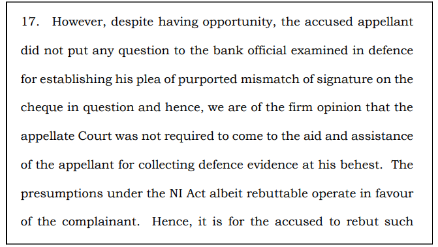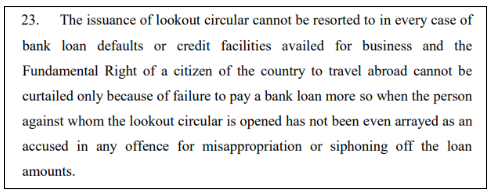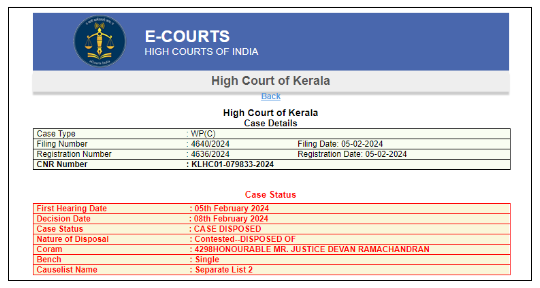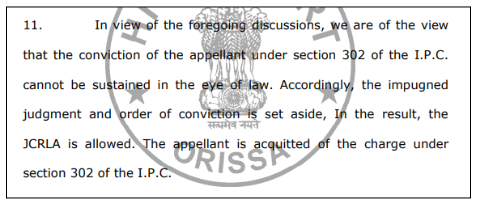In this edition of the Court judgements review, we look at SC’s order that merely being late in following a court order doesn’t qualify as contempt unless the delay is intentional and deliberate, SC’s order that Section 391 CrPC or authority to take additional evidence should be invoked only if the party was unable to present evidence during the trial, Odisha HC’s ruling that hair comparison alone cannot be used for murder conviction, among others.
SC: Merely being late in following a court order doesn’t qualify as contempt unless the delay is intentional and deliberate
The Supreme Court was addressing the case of an IAS officer who was found guilty by the Hyderabad High Court for intentionally disobeying the court’s order. The High Court had ruled that without a good reason for the delay, it seemed like the person deliberately disobeyed the court’s order. As a penalty, the court imposed a fine of Rs. 500 in L V Subrahmanyam, IAS, Principal Secretary, Medical and Health Department, Government of Andhra Pradesh vs. The Registrar General, High Court of Judicature at Hyderabad.
The bench comprising of Justice BR Gavai, Justice Sudhanshu Dhulia, and Justice Sandeep Mehta referred to the Contempt of Courts Act proceedings as quasi-judicial (like legal actions) and stated that the provisions of the Contempt of Courts Act would only apply if the individuals deliberately or wilfully disobey the court order, not just because they were late in complying with it. The High Court’s decision was quashed by the Supreme Court and the appeal was allowed.

SC: Section 391 CrPC or authority to take additional evidence should be invoked only if the party was unable to present evidence during the trial
The case, Ajitsingh Chehuji Rathod vs. State of Gujarat, involves an appeal related to a criminal case, specifically a cheque dishonour or cheque bounce case. The appellant wrote a check for Rs. 10 lakhs, but it bounced, leading to legal action. He tried to bring in a handwriting expert to support their case, but the request was denied by the court. Subsequently, they were found guilty, and even in their appeal to a higher court, the evidence from the handwriting expert was not allowed. The case was then taken to the Supreme Court, contesting the decisions made by the lower courts.
A bench of Justices BR Gavai and Sandeep Mehta rejected the request under Section 391 CrPC, stating that the accused had the opportunity to question a bank official during the trial but did not do so to establish a signature mismatch. It stressed that Section 391 CrPC should be invoked only if the party was unable to present evidence during the trial despite diligence or if new facts emerged later in the appeal, highlighting the risk of justice failure if such evidence is not recorded.
Further, the court emphasized that Section 118(e) of the Negotiable Instruments Act presumes the authenticity of endorsements, placing the burden on the accused to present evidence to challenge this presumption.
The court upheld the Gujarat High Court’s decision, highlighting that the accused should have taken steps like obtaining certified copies of their specimen signatures and presenting appropriate defence evidence, and the court is not obligated to assist in collecting evidence on behalf of the accused.

Delhi HC: An individual’s fundamental right to travel cannot be restricted solely based on the non-repayment of a bank loan.
In Shalini Khanna vs. Union of India, the petitioner and her husband signed a Deed of Guarantee to repay a loan provided by the bank for cash credit facilities used by the directors of a company. The directors withdrew Rs 5.95 crores out of the released Rs. 7 crores in cash credit facilities, according to the petitioner. Subsequently, the bank accused them of misappropriating funds, leading to the initiation of legal proceedings. A lookout circular was issued against her by the Bureau of Immigration. The Central Bureau of Investigation (CBI) filed a complaint against Khanna and the Directors of the company under Section 420 and 120B of the Indian Penal Code (IPC), along with Section 13 (1)(d) and Section 13(2) of the Prevention of Corruption Act.
Justice Subramonium Prasad of Delhi High Court noted that while the Union Government allows banks to request the issuance of a Lookout Circular, such a circular should only be issued if the person’s departure poses a threat to the country’s sovereignty, security, bilateral relations, or strategic and economic interests. The term ‘detrimental to the economic interests’ should be of significant magnitude to significantly impact the economy, and Rs. 7 crores is not that large an amount, he said.
The Delhi High Court also emphasized that the issuance of a lookout circular should not be a routine measure for every case of bank loan defaults or credit facilities used for business purposes. The court stated that a citizen’s fundamental right to travel abroad should not be restricted solely due to the failure to repay a bank loan, especially when the person is not accused of any offense related to the misappropriation or misuse of loan amounts. The court quashed the lookout circular against the petitioner and mentioned that if she is later accused during criminal proceedings, the bank can request a new Lookout circular against her from the Bureau of Immigration.

Kerala HC: Parents are legal heirs and so the mortal remains of the deceased would remain with them and not live-in partner
The Kerala High Court bench of Justice Devan Ramachandran gave an oral verdict in the case, Jebin Joseph vs. State of Kerala (Case Number: WP (C) No. 4636 of 2024). According to Livelaw, the petitioner, a queer individual, had filed a case before the High Court of Kerala claiming that his live-in partner had died on 3 February 2024 by falling from his flat. The hospital was reportedly holding the mortal remains due to unpaid medical bills. Additionally, the petitioner was informed that he lacks recognition of any rights concerning the deceased under legislative or customary laws.
According to the bench, decisions about the mortal remains of the deceased would remain with the parents as they are the legal heirs. It did not allow the release of the deceased person’s body to the claimed partner as there wasn’t any proof provided to show that they were in a relationship. The court allowed the petitioner to be present at the final ceremonies of his late live-in partner if the bereaved family did not raise any objections. The court also acknowledged the social stigma faced by LGBTQIA+ couples and instructed that necessary support be extended to the petitioner to participate in the last rites of their deceased partner.

Odisha HC: Hair comparison alone cannot be used for murder conviction
In Pratap vs. State of Odisha, the deceased was found dead with injuries, and the wife accused the appellant of murder, citing threats over a motor pump theft. Another villager was also suspected due to a family dispute. The trial court found the appellant guilty, leading to an appeal before the Odisha High Court.
After reviewing the evidence and arguments, the court highlighted three points against the appellant: a prior enmity, blood stains on a sword, and matching hairs on the deceased’s palm. However, it dismissed the motive claim, found the blood stains inconclusive due to lack of origin determination and blood grouping, and hesitated to rely on the hair evidence due to the absence of proof regarding its handling after recovery. The Bench of Justice Sangam Kumar Sahoo and Justice Sanjay Kumar Mishra held the view that while microscopic hair comparison is recognized as a valid and reliable scientific method, it should not be the sole grounds for convicting an accused.
Considering the above decisions and the fact that the recovered hairs were not proven to be stored properly before chemical examination, the bench concluded that the appellant’s role in the crime is uncertain. It would be risky to convict him based solely on this evidence, it said and acquitted him of murder charges.



